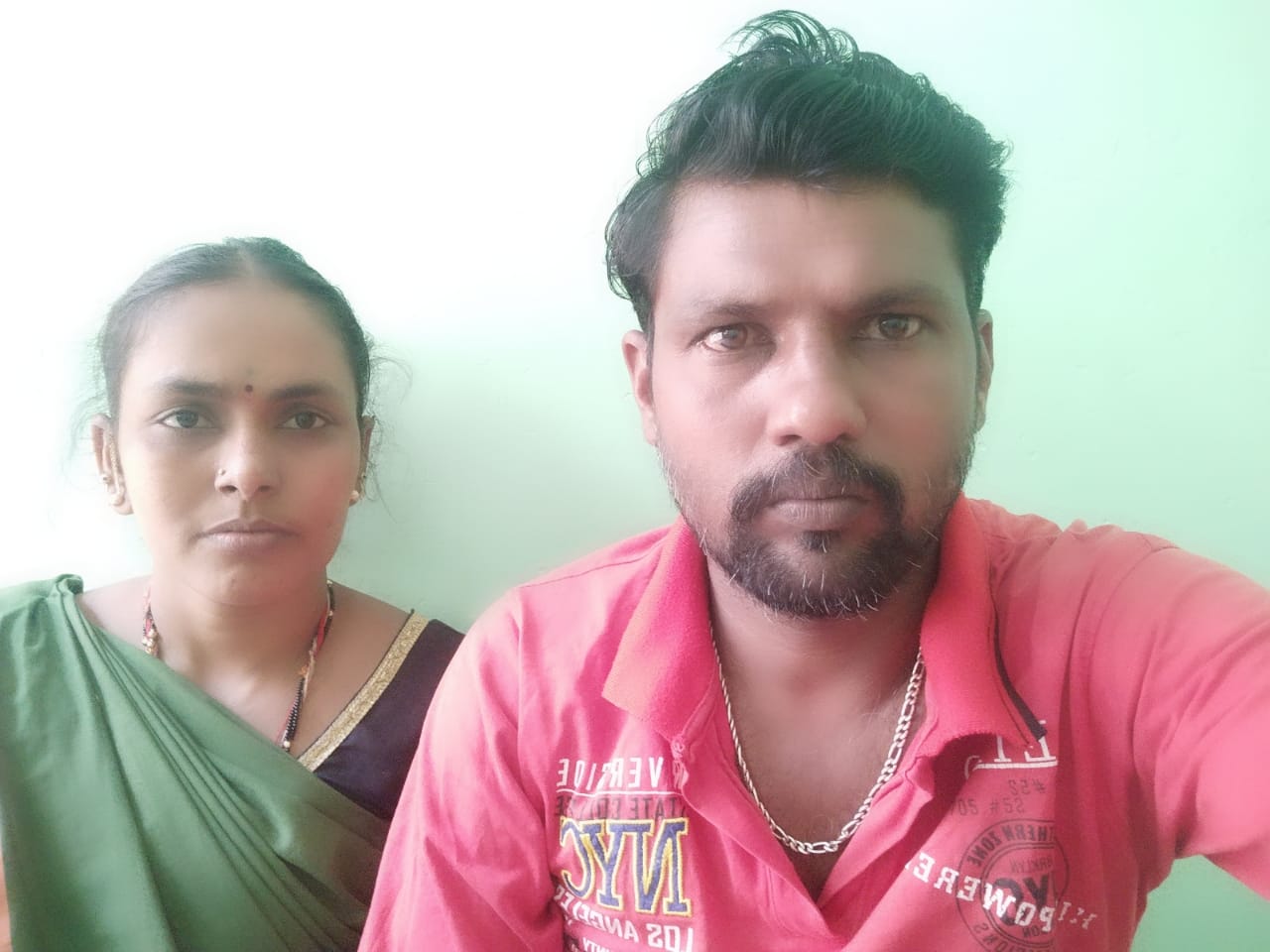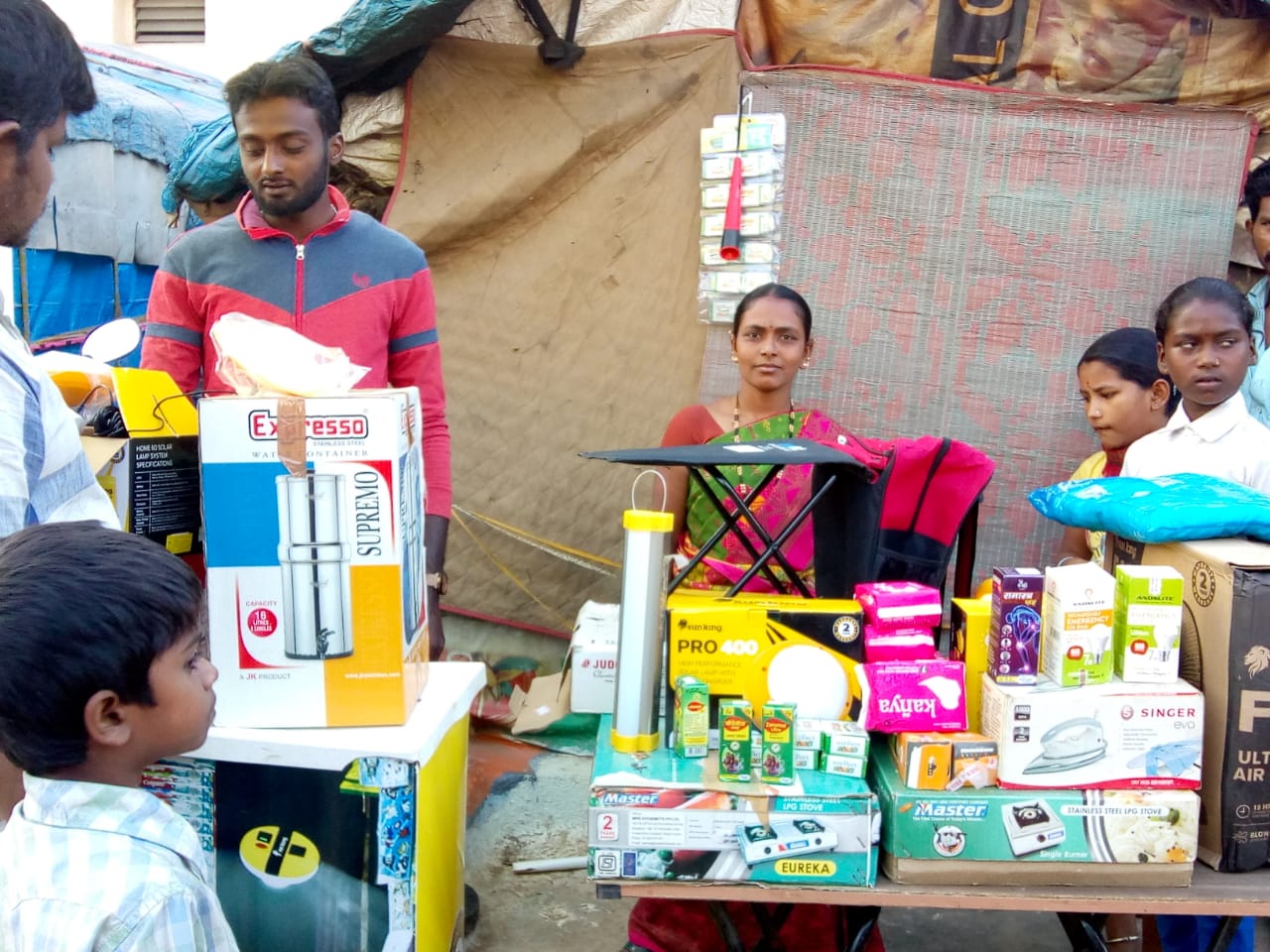How Dugamma’s quest for an identity turned her into a leader
- by Oluwaseyi Oyeneyin
- November 10, 2021
Dugammma and her husband migrated to the big city of Bangalore from their drought-prone village in Northern Karnataka, with the dream of earning a steady income and saving up for their children. The couple has been living in their small tent in a bustling informal settlement community in west Bangalore since 2006. Their two children still live in their native village attending a local government school. In the city, Dugamma works as a street sweeper while her husband works as a driver with the local municipality of Bangalore. She joined Pollinate Group in November 2019 in order to make an additional income. Even though she has no schooling, Dugamma was keen to learn and was ambitious to provide better opportunities to her children.

According to the Centre for American Progress, from a global perspective, women own only 1 per cent of all property, earn 10 per cent of all income, and yet they produce half of the world’s food. Any empowerment programme must centrally focus on women because they are 70 per cent of the world’s poor. The United Nations found that women comprise two-thirds of the global illiterate population and all women face additional hurdles to their economic and social well-being, including the pay gap and the fact that women are much more likely to hold vulnerable jobs.
Dugamma uses her income from Pollinate for her children’s well-being. She says, “Many houses in and around where I live do not have access to electricity. I got a solar light from Pollinate Group many years ago. For us, this was the beginning of a reliable source of light after sunset, both literally and financially. People who would visit our house began inquiring about it and I slowly started working towards selling these solar lights. It’s a “word of mouth” business; light today is a basic requirement, so people come looking for me to buy the product. A lot of my customers send these products to their villages where even to this day electricity is unheard of due to their remoteness.”
Pollinate Group reaches out to women living in extreme poverty, with a particular focus on marginalized groups including rural women, migrant workers and those who have never had any formal skills training. Our aim is to enable women to access increased income and economic independence, which helps them pull themselves and those around them out of poverty.

When asked how COVID-19 has impacted her business, Dugamma shares, “Last year, COVID-19 hit sales very hard. Many people from my community returned to their native villages and to tell you honestly, a lot of them have not even come back since then. But people always migrate to big cities looking for jobs and now many new families have moved into our community. This year, while sales have certainly reduced due to the lockdowns, I am still able to sell products here and there. The biggest achievement for me, though, is the new identity I have found as a leader. People knew me as a sweeper earlier. Today, they ask around for my house and come looking to learn more about these products. It is, indeed, a matter of pride.”
Despite having no formal education, Dugamma has recently learnt and started to make online payments to Pollinate Group through a mobile phone, for the products she sells. In the month of May, despite COVID-19 induced lockdowns in Bangalore, She was able to make sales worth 16,000 INR (US$210). Her earnings from the sale of solar lights and other life-improving products have helped contribute to her children’s education in her native village and are slowly lifting the family out of poverty.
